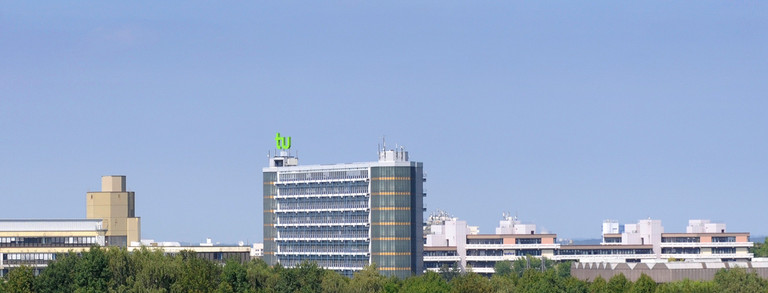Three Questions to the Chancellor at the Start of his Term of Office
- Top News
- People
- Higher Education Policy

Mr. Neuhaus, in your inaugural speech on 18 October to an audience of around 400 members from academia and administration at TU Dortmund University, you described where university administration faces particular challenges. Since you, as Chancellor, are responsible for the university’s budget, let’s start with the finances: What is the status quo as far as income and expenditure are concerned?
TU Dortmund University’s income is stable and even growing slightly in terms of euros. However, purchasing power has noticeably decreased due to inflation and pay increases, so our real income is falling. In the past two years, the university had a deficit of €15m, which was offset with capital reserves. That equates to around 5 % of our basic funding. We need to reduce this deficit step by step by 2026. To achieve this, everyone – administration and academia alike – must do their bit towards saving money. We are not the only ones facing this challenge: It affects all the universities in North Rhine-Westphalia.
In your inaugural speech, you said that consolidating the university’s finances is one of “four tough nuts” that administration needs to crack. Two others are refurbishment and the energy transition. What’s in store for the university?
Refurbishing our campus is a major task, as many of the buildings date back to the 1970s. Around 20 percent of the usable space requires a lot or even extensive refurbishment. We need to prioritize what we can tackle and when within the Neue Masterplanung, the state’s master plan for university buildings. At the same time, we must plan how we are going to meet climate targets. The goal is for the universities in North Rhine-Westphalia to be climate neutral by 2030 and to reach the target of net-zero emissions by 2045. That is why we are further pursuing those of our projects devoted to generating our own green electricity in the next years, and we also need to think about how we could heat our buildings entirely with renewable energy in twenty years’ time at the latest. The path to climate neutrality involves many steps, both big and small: For example, we are currently in the process of installing 100 public charging stations for e-cars on campus and will soon be in a position to offer bike leasing.
The fourth “tough nut” you mentioned in your speech is further progress in digitalization. The coronavirus pandemic triggered considerable momentum, but what still needs to be done here?
Indeed, the pandemic advanced digitalization in many areas. However, we must continue to work towards implementing the statutory requirements of North Rhine-Westphalia’s E-Government Act, which above all calls for the introduction of e-files in areas such as HR and construction. At the same time, better IT security is also on the agenda: Universities are the target of cyberattacks almost every day, and we need to reinforce our defense mechanisms here. Lastly, we must also examine the opportunities and risks presented by AI. There are certainly opportunities where AI can make administrative processes more efficient. In parallel, the EU’s AI Act sets limits on the use of artificial intelligence, for example in conjunction with admission to educational institutions.
Staff of TU Dortmund University can find a long version of this interview in the ServicePortal, in which the Chancellor answers further questions related to administration.
About Markus Neuhaus:
Markus Neuhaus, 52, has been the new Chancellor of TU Dortmund University since 1 September, 2024. He previously worked at the university’s Corporate Center Human Resources, most recently as its director.




![[Translate to English:] Partner Four hands are holding the green logo of TU Dortmund University](/storages/tu_website/_processed_/1/d/csm_Partner_Nicole_Rechmann_KW_670eba0154.jpg)




![[Translate to English:] Forschung An apparatus with tubes in a laboratory](/storages/tu_website/_processed_/0/c/csm_Forschung_Juergen_Huhn_4fa3153b51.jpg)
![[Translate to English:] Studium Five students are sitting in a lecture hall. They are talking to each other.](/storages/tu_website/_processed_/c/9/csm_Studium_FelixSchmale_dbdbfb0dd7.jpg)







